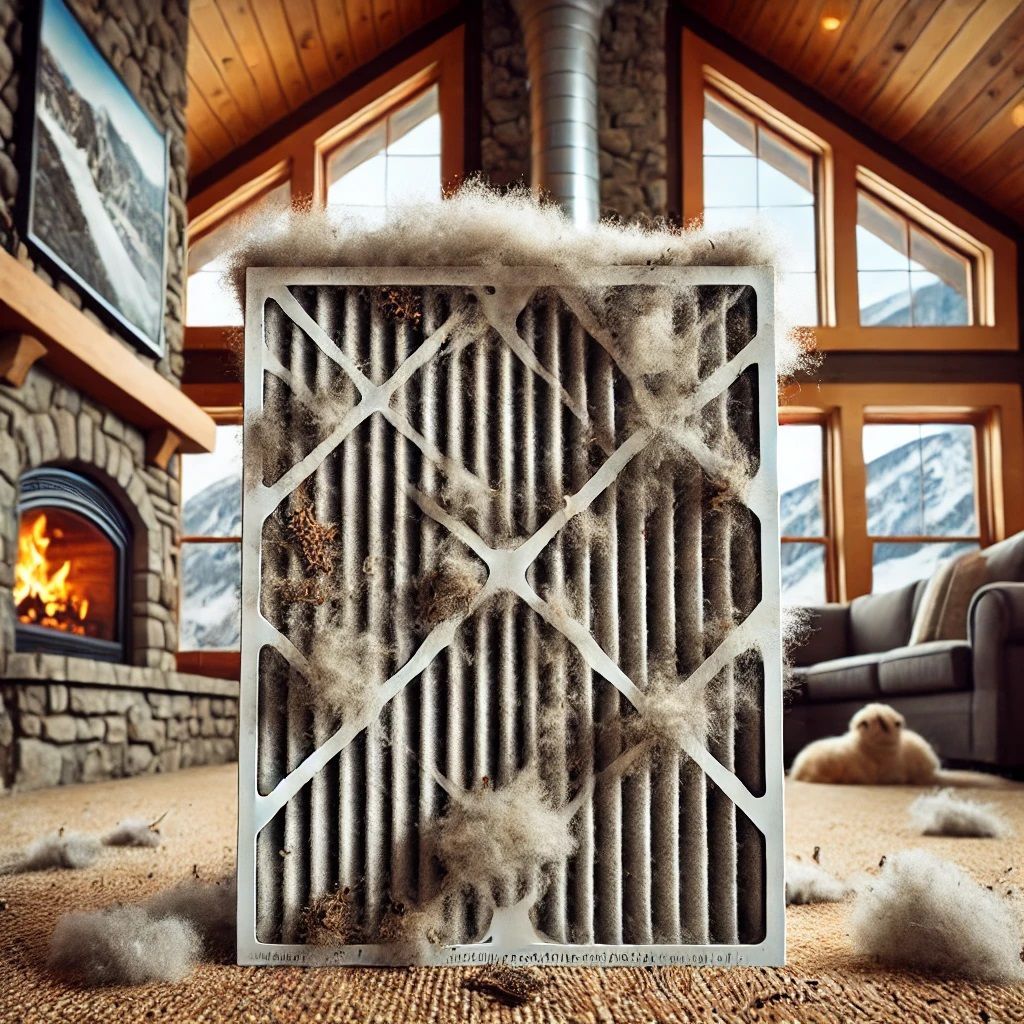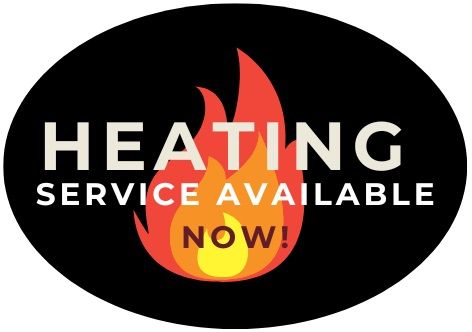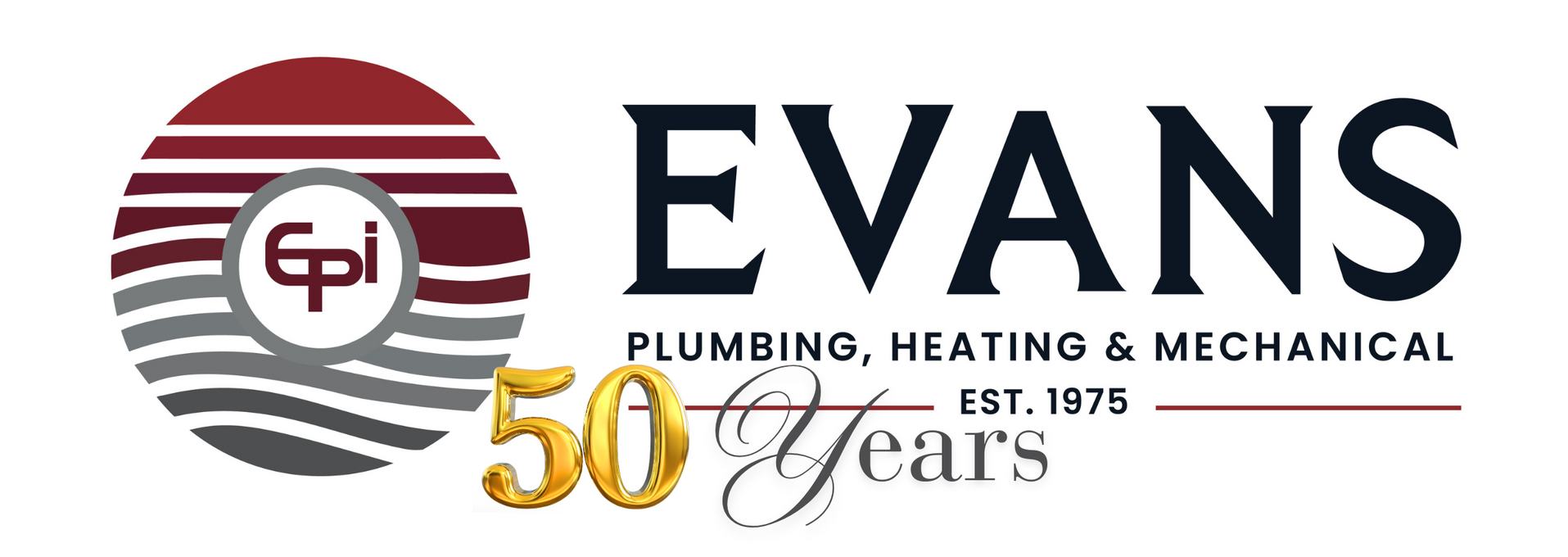What’s the Difference Between a Furnace and a Boiler?
January 7, 2025
In order to get the service you really need for your heating system, it’s important to know the proper terminology. When your heater needs repairs or if you are shopping around for a new one, you should be able to identify whether you are thinking of a boiler or a furnace. Don’t worry; it’s not uncommon to confuse the two. Sometimes, you get so used to hearing one term or the other, the differences may not occur to you. Or, you may move from a relatively warm climate to somewhere homeowners have all kinds of different systems in place. We are here to help. Below, we describe the differences between a furnace (the most common heating system in the US) and a boiler (only common in cold areas like ours). Be sure to call our team when you need furnace or boiler services in Jerome, ID!
Furnaces Heat Up the Air
A furnace’s heat exchanger warms up as heat is produced during the combustion process. A blower fan near the furnace sucks in air from around your home through a register and past a filter. Then, the air moves over the heat exchanger.
Boilers Use Hydronic Heating
Boilers do not work by blowing hot air into a room. Instead, a boiler uses combustion to heat a tank full of water. Hot water circulates through the home via a network of pipes. This means either a piping system intricately laid out in the walls or the floors, or you may have a radiator or baseboard as an endpoint.
Which Is the Better System?
People who have boilers emphasize a lot of points when they say they will never go back to have a furnace to heat the home. What do homeowners love about their boilers?
• Hydronic (water-based) heat transfer is effective and efficient. It simply does not compare to heating the air in a home.
• Today’s boilers are more efficient than they’ve ever been. The misconception that boilers may be inefficient for heating a home comes largely from people’s perceptions of older boilers.
Boilers and furnaces start up in a similar way. They use natural gas or another type of heating oil for combustion. When the fuel ignites, a flame provides the heat necessary to keep the system going. But the combustion process is where the similarities end.
The blower fan then pushes the air through a duct system. And that is how warm air reaches the rooms of your home.
Boilers do not work by blowing hot air into a room. Instead, a boiler uses combustion to heat a tank full of water. Hot water circulates through the home via a network of pipes. This means either a piping system intricately laid out in the walls or the floors, or you may have a radiator or baseboard as an endpoint.
The heat from the water transfers directly to the objects and people in the room. This is called hydronic heating. This direct heat transfer is much different from forced-air heating (a furnace). But is it the best choice?
People who have boilers emphasize a lot of points when they say they will never go back to have a furnace to heat the home. What do homeowners love about their boilers?
• Hydronic (water-based) heat transfer is effective and efficient. It simply does not compare to heating the air in a home.
• Today’s boilers are more efficient than they’ve ever been. The misconception that boilers may be inefficient for heating a home comes largely from people’s perceptions of older boilers.
• Boilers have a long lifespan and are unlikely to break down often.
However, furnaces still have their merits. That’s why it’s usually best to consult with a technician before making any big decision about your heating system. Furnaces are less costly to install, and many homes are already set up for them. Call our team for more information and we will be happy to help with the entire installation process.
Evans Plumbing Inc installs and services boilers and furnaces in Jerome, ID. Call our team to learn more!


If you live in Ketchum, Hailey, Sun Valley, or Bellevue, you know that keeping your home warm during the cold winters of the Wood River Valley is a top priority. One crucial part of maintaining your heating system is changing your furnace filter regularly—but what happens after you replace it? Many homeowners wonder: 👉 Are furnace filters recyclable? The short answer is: most furnace filters are NOT recyclable due to their mixed materials. However, there are still eco-friendly ways to dispose of them. Let’s dive into why most filters can’t be recycled and what you can do instead. Why Can’t Most Furnace Filters Be Recycled? Standard furnace filters are made up of several different materials, including: ❌ Fiberglass or polyester fibers – These trap dust, allergens, and debris but are not biodegradable or recyclable. ❌ Metal or plastic frames – Some filters have metal or plastic components, which would need to be separated before recycling. ❌ Wire mesh or cardboard – While cardboard can sometimes be recycled, it’s often contaminated by dust and dirt, making it non-recyclable. Since these materials are fused together, most recycling centers in Wood River Valley, including those in Hailey and Ketchum, do not accept used furnace filters. Eco-Friendly Ways to Dispose of Furnace Filters Even though you can’t toss your old filter into the recycling bin, here are some better disposal options: 1. Check with Blaine County’s Waste Management The Ohio Gulch Transfer Station serves Ketchum, Sun Valley, Hailey, and Bellevue, and they may have guidelines for proper disposal. While they don’t currently recycle furnace filters, they can direct you to the best disposal method. 2. Reduce Waste with Reusable Filters Instead of tossing filters every few months, consider switching to a washable, reusable furnace filter. These can last for years and reduce landfill waste. 3. Use HEPA Filters Responsibly HEPA filters, often used for improved indoor air quality, are even more difficult to recycle. If you use one, check with your HVAC provider (like us at Evans Plumbing, Heating, and Mechanical) for proper disposal tips. How Often Should You Change Your Furnace Filter in Wood River Valley? Because our region experiences cold winters and wildfire smoke in summer, furnace filters in homes across Hailey, Ketchum, and Sun Valley can clog up faster than usual. 📌 Every 1–3 months – If you have pets, allergies, or use your heating system frequently. 📌 Every 6 months – If you have a high-efficiency system or don’t use your furnace as often. 📌 Every 30 days – If you have severe allergies or rely on your HVAC system year-round. A clogged filter reduces efficiency and increases energy costs, so staying on top of replacements is key. Need Help with Your HVAC System? Call Evans Plumbing, Heating, and Mechanical! At Evans Plumbing, Heating, and Mechanical, we’ve been serving Wood River Valley homeowners for over 50 years, providing expert furnace maintenance, repairs, and replacements in Ketchum, Hailey, Sun Valley, and Bellevue. ✔️ Need help choosing the best filter for your home? ✔️ Want to upgrade to a more energy-efficient HVAC system? ✔️ Not sure when your last furnace check-up was? We’re here to help! Call us today to schedule an appointment or ask about eco-friendly HVAC solutions.

The HVAC industry is undergoing a technological revolution, with artificial intelligence (AI) playing a crucial role in optimizing energy efficiency and improving overall system performance. AI-driven HVAC systems are reshaping how homes and businesses manage climate control, leading to cost savings, greater comfort, and a reduced environmental footprint. What is AI in HVAC? AI in HVAC refers to the integration of machine learning, predictive analytics, and automation to enhance heating, ventilation, and air conditioning systems. These smart systems continuously collect and analyze data to adjust settings for maximum efficiency and performance. Rather than relying on manual thermostat adjustments, AI-powered HVAC solutions learn from user behaviors and environmental factors to deliver optimal comfort with minimal energy waste. Benefits of AI-Powered HVAC Systems AI-driven HVAC systems offer several advantages that benefit both residential and commercial users: Energy Efficiency : AI optimizes heating and cooling based on occupancy patterns, weather forecasts, and real-time energy consumption data, reducing waste and lowering utility bills. Predictive Maintenance : AI can detect irregularities in system performance, alerting homeowners and technicians before major failures occur. This reduces downtime and extends equipment lifespan. Enhanced Comfort : Smart HVAC systems adapt to individual preferences, maintaining a comfortable indoor environment without the need for constant manual adjustments. Remote Monitoring and Control : With AI integration, HVAC systems can be controlled remotely via smartphone apps, allowing users to adjust settings from anywhere. Reduced Carbon Footprint : By maximizing efficiency, AI-driven HVAC systems lower greenhouse gas emissions and contribute to environmental sustainability. How AI is Changing Building Energy Management For commercial buildings, AI-powered HVAC solutions are playing a vital role in reducing operational costs. AI-driven building management systems analyze occupancy trends and outdoor climate conditions to optimize energy usage in real time. Some advanced systems can even communicate with smart grids to adjust HVAC operation during peak energy demand periods, helping to stabilize electricity supply and reduce costs. The Future of AI in HVAC The role of AI in HVAC will continue to expand as technology advances. Emerging trends include: Self-Learning Thermostats : AI-enabled thermostats that continually refine their settings based on user feedback and energy consumption data. AI-Driven Air Quality Monitoring : HVAC systems that detect pollutants and allergens, adjusting airflow and filtration accordingly. Automated Fault Detection : Systems that instantly diagnose issues and recommend solutions, reducing maintenance costs and improving reliability. Integration with Smart Home Ecosystems : AI-powered HVAC systems that work seamlessly with other smart devices, such as lighting and security systems, to create a fully automated home environment. Should You Upgrade to an AI-Enabled HVAC System? If you’re looking for a way to reduce energy bills, enhance comfort, and minimize maintenance costs, an AI-powered HVAC system could be a worthwhile investment. Whether for a home or a commercial property, these intelligent systems provide long-term savings and improved performance. At Evans Plumbing, Heating, and Mechanical, we specialize in cutting-edge HVAC solutions that incorporate AI and smart technology. Contact us today to learn how AI can revolutionize your heating and cooling system, providing you with a smarter, more efficient home or business.

As energy efficiency and sustainability take center stage, heat pumps have emerged as one of the most sought-after HVAC solutions. These systems, which provide both heating and cooling, are rapidly gaining popularity among homeowners and businesses looking for cost-effective, eco-friendly alternatives to traditional furnaces and air conditioners. Let’s explore why heat pumps are revolutionizing the industry and whether they’re the right choice for your home. What Are Heat Pumps and How Do They Work? Unlike conventional heating and cooling systems that generate heat or cold air, heat pumps transfer heat from one place to another. In the winter, they extract heat from the outdoor air (or ground) and move it indoors. In the summer, they reverse the process, removing heat from inside your home to cool it down. There are three main types of heat pumps: Air-Source Heat Pumps (ASHPs): The most common type, which transfers heat between indoor and outdoor air. Ground-Source (Geothermal) Heat Pumps: These systems extract heat from the ground, offering exceptional efficiency but requiring installation of underground piping. Water-Source Heat Pumps: Used in properties with access to a nearby water source, such as a pond or lake. Why Are Heat Pumps Gaining Popularity? Several factors are driving the widespread adoption of heat pumps: Energy Efficiency: Heat pumps are significantly more efficient than traditional furnaces and air conditioners because they move heat rather than generate it. Lower Utility Bills: With high efficiency comes reduced energy consumption, translating to long-term cost savings. Environmental Benefits: Heat pumps reduce reliance on fossil fuels and lower carbon emissions, making them a sustainable option. Government Incentives: Many regions offer rebates and tax credits to encourage homeowners to switch to heat pumps. Year-Round Comfort: A single system provides both heating and cooling, simplifying home climate control. Are Heat Pumps Suitable for Cold Climates? One of the biggest concerns about heat pumps is their performance in colder climates. Fortunately, modern advancements in heat pump technology have led to the development of cold-climate heat pumps , which can effectively extract heat even in subzero temperatures. If you live in an area with harsh winters, look for a model specifically designed for extreme cold. What to Consider Before Making the Switch Before installing a heat pump, consider the following: Upfront Cost: While heat pumps offer long-term savings, the initial investment can be higher than traditional systems. Home Insulation: Proper insulation ensures that your heat pump operates at peak efficiency. Installation Requirements: Ground-source and water-source heat pumps require additional space and infrastructure. Is a Heat Pump Right for You? If you’re looking for an energy-efficient, all-in-one heating and cooling solution, a heat pump may be the perfect fit. Whether you want to reduce your carbon footprint, save on utility bills, or take advantage of available incentives, heat pumps are a smart investment in the future of home comfort. At Evans Plumbing, Heating, and Mechanical, we specialize in helping homeowners choose the best HVAC solutions for their needs. Contact us today to learn more about heat pump installation and how you can benefit from this cutting-edge technology.


Share On: